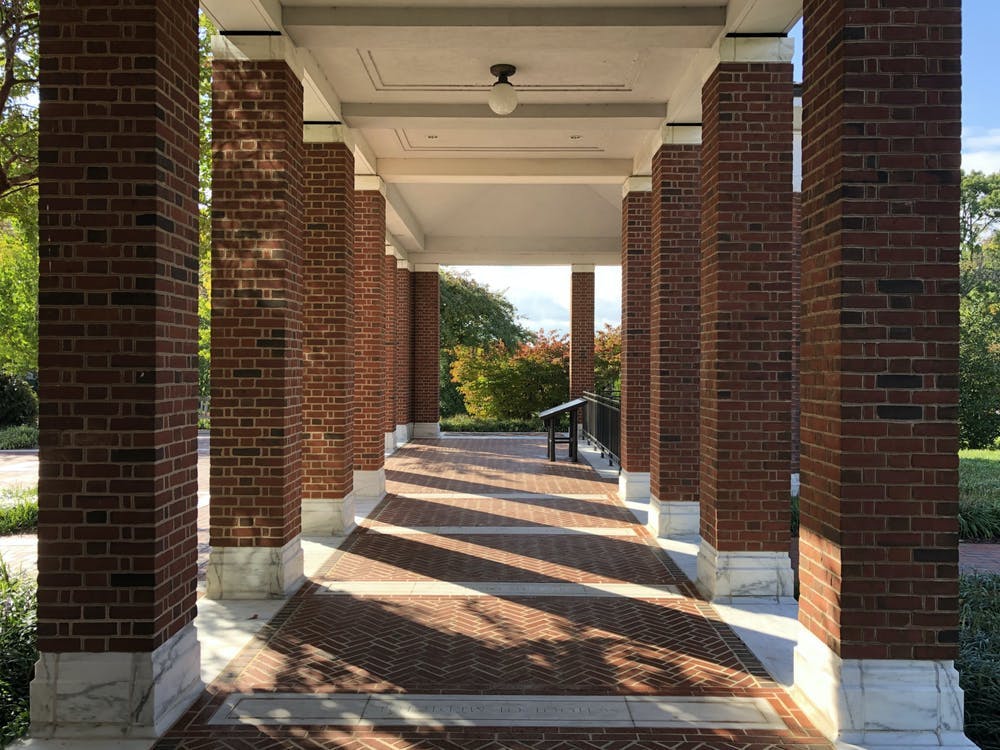You may have been surprised to see the University’s announcement regarding spring 2021 earlier this month. You were more than likely happy about it, but you were definitely still surprised. Something seemed a bit off.
On the same day that Vice Provost for Student Affairs Alanna Shanahan and Executive Vice Provost for Academic Affairs Stephen Gange sent an email to Hopkins undergraduates titled “Welcoming you to campus this spring,” the U.S. reported its highest seven-day average of COVID-19 cases yet. Just a few days earlier, Dr. Anthony Fauci told The Washington Post, “All the stars are aligned in the wrong place... You could not possibly be positioned more poorly.” This contrast should be treated as a flashing red warning sign.
Last summer the University sent out a similar email regarding fall 2020 planning, telling students to expect a hybrid semester. A few months later, mere weeks before classes began, the administration had to renege on its tentative announcement, offering to pay the rent of students who had already signed leases. Then, the preliminary announcement was somewhat defensible; COVID-19 cases seemed to be on the decline, and cities were opening back up. The same cannot be said for this month’s email.
According to Shanahan and Gange, the University is planning with “cautious optimism.” But as cases have spiked to record highs in the U.S., one wonders if Hopkins has made an error in balancing caution and optimism in its calculations. Announcing plans to expand operations at a time when Baltimore City itself has retreated back to its Phase One restrictions is quixotic at best and dangerous at worst.
According to the New York Times college COVID-19 tracker, the Hopkins community has already experienced nearly 500 COVID-19 cases since the start of the pandemic. These 477 cases occurred while very few students were on campus — with strict density limitations on employees and the few on-campus residents.
The University’s peer institutions have seen far fewer cases even with far more students on campus. Harvard University, despite welcoming 40% of its students back to campus, has seen 105 cases. Yale University, currently hosting 85% of its student population, has seen only 244 cases. Unlike Yale, Hopkins has not been conducting asymptomatic testing of off-campus residents, so the true numbers are likely even higher. It is unclear why Hopkins has seen such high numbers, but it doesn’t exactly inspire confidence. Hopefully, with such testing planned for the spring semester, cases will be caught earlier — regardless of whether or not classes take place in-person.
There is no good news in the data being published by the University’s own COVID-19 map; the trends are almost universally unfavorable to any relaxation of restrictions. In fact, if these trends continue or worsen during the holiday season, as they likely will, it would not be surprising to see far stronger national and statewide restrictions in January. As a leading public health institution, it is more important than ever that the University’s decisions be guided by science. Welcoming students back to campus when COVID-19 is more rampant than ever is not scientifically sound.
Perhaps, against all scientific predictions, the winter months will stymie the pandemic. Perhaps, on the most optimistic timeline, a vaccine will not only be approved but distributed prior to the start of the spring semester. Perhaps Hopkins will find a way to enclose its students in literal plastic bubbles. All of this is to say that it isn’t impossible to imagine a hybrid spring semester; it is very difficult, however, to understand why the administration seems to feel obligated to make grand pronouncements about the future at a time when the future is nothing but uncertain.
Will Edmonds is a junior from New York City studying Political Science and Economics. He is a staff writer for The News-Letter and the vice president of Public Policy Consulting at Hopkins.





